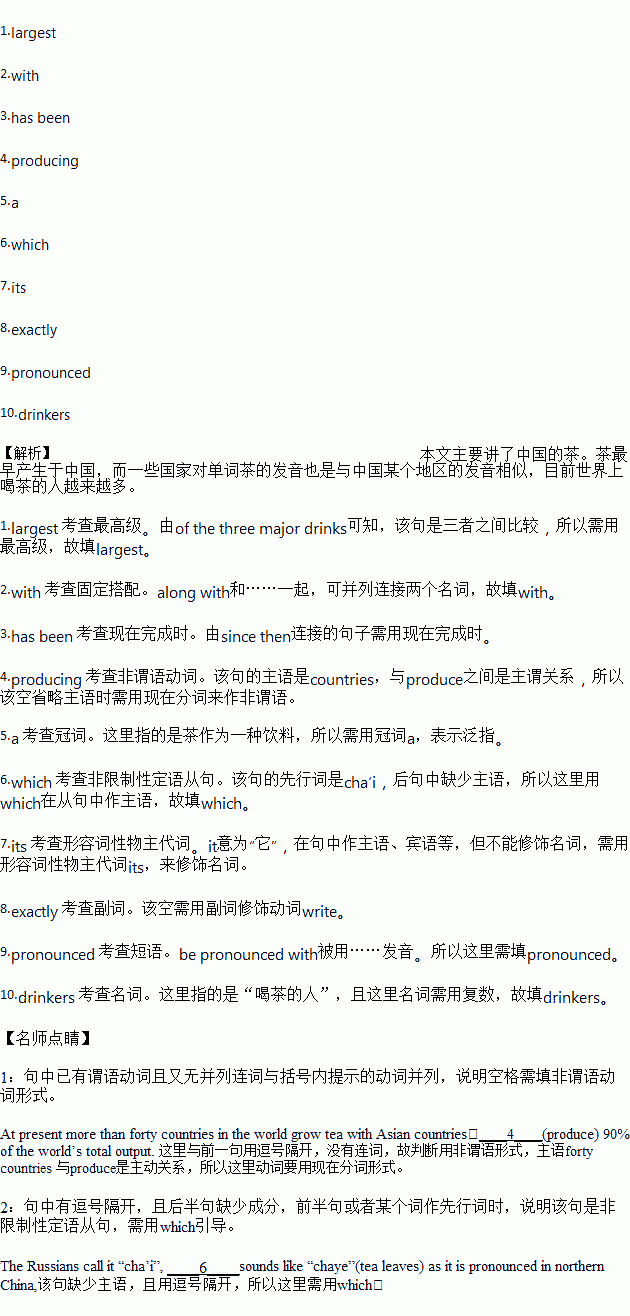题目内容
Of the three major drinks of the world—tea, coffee and cocoa—tea is consumed by the
1.(large) number of people.
China is the homeland of tea. Human cultivation of tea plants dates back to two thousand years ago. Tea from China, along2.her silk and porcelain, began to be known to the world more than a thousand years ago and since then it 3.(be) an important Chinese export.
At present more than forty countries in the world grow tea with Asian countries,4.(produce) 90% of the world’s total output. All tea trees in other countries have their origin directly or indirectly in China. The word for tea leaves or tea as 5.drink in many countries are derivatives(衍生物) from the Chinese character “cha”. The Russians call it “cha’i”, 6.sounds like “chaye”(tea leaves) as it is pronounced in northern China, and the English word “tea” sounds similar to the pronunciation of7.(it) counterpart(对应物) in Xiamen. The Japanese character for tea is written 8.(exact) the same as it is in Chinese, though 9.(pronounce) with a slight difference. The habit of tea drinking spread to Japan in the 6th century, but it was not introduced to Europe and America till the 17th and 18th centuries. Now the number of tea10.(drink) in the world is still on the increase.
| A. | became | B. | turned | C. | grew | D. | fell |

